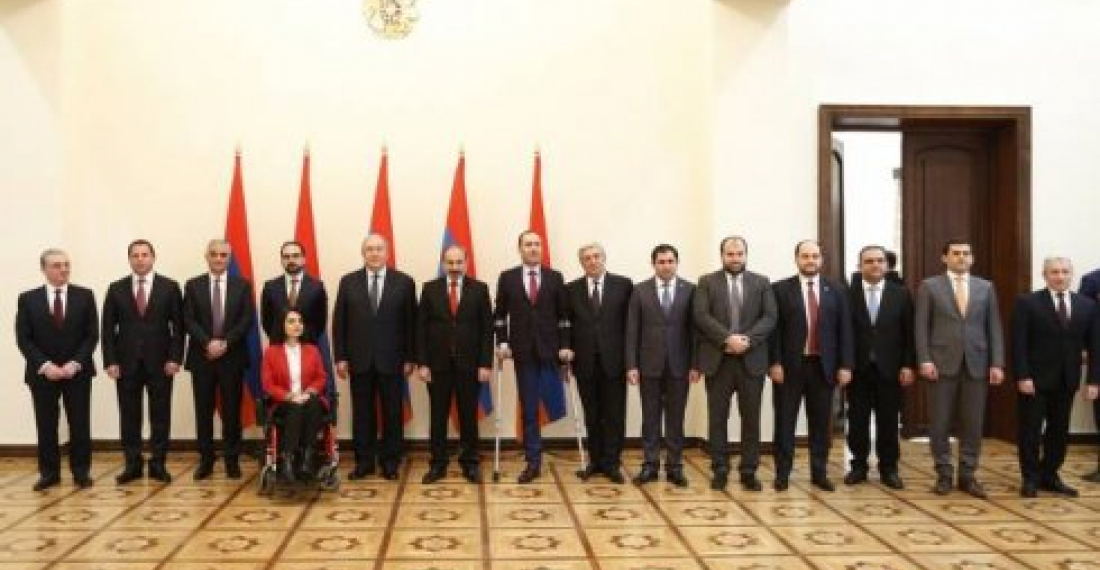Armenia has slimmed down its government bureaucracy. The number of ministers in Nikol Pashinyan's cabinet has been brought down to 12 from 17.
The twelve new ministries were announced yesterday as follows:
Ministry of Foreign Affairs
Ministry of Defence
Ministry of Emergency Situations
Ministry of Justice
Ministry of Labour and Social Affairs
Ministry of Education, Science and Culture
Ministry of Nature Protection
Ministry of Health
Ministry of Finance
Ministry of Economy
Ministry of Territorial Administration and Infrastructure
Ministry of Advanced Technology Industry
There was earlier some controversy after it was announced that one of the ministries that was being abolished was the Ministry for relations with the Diaspora. It has now been announced that a special Ambassador-at-Large, based at the prime minister's office, will be overall in charge of relations with Armenia's large diaspora communities.
source: commonspace.eu with agencies
photo: The new Armenian Cabinet led by prime minister Nikol Pashinyan was sworn in by president Armen Sarkissian in January (archive picture)







